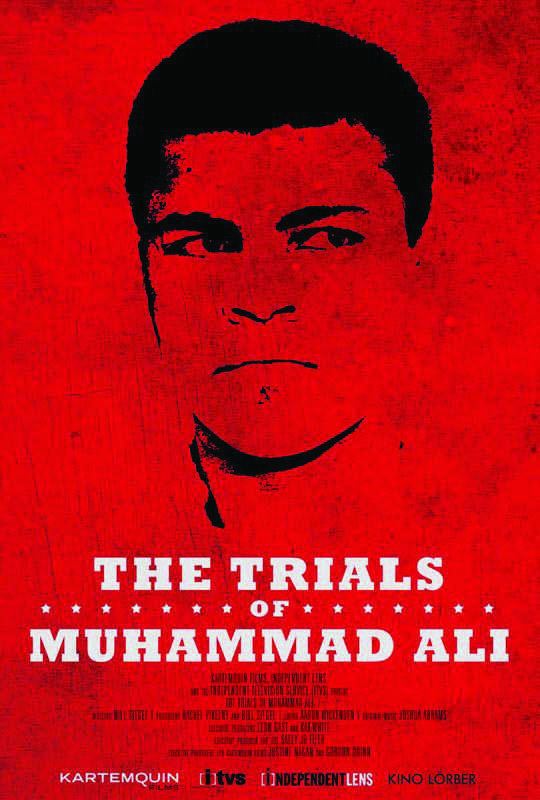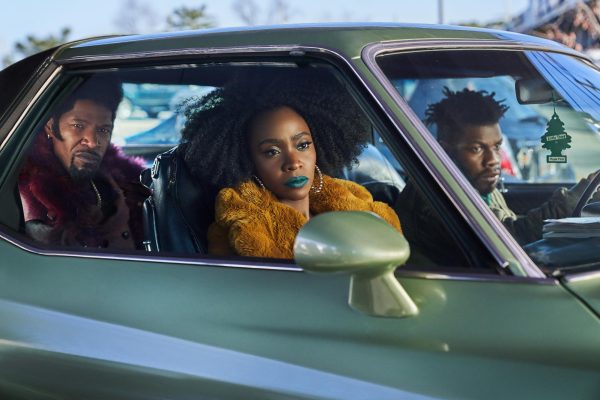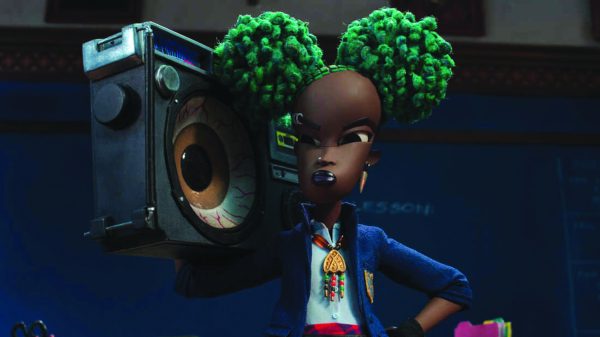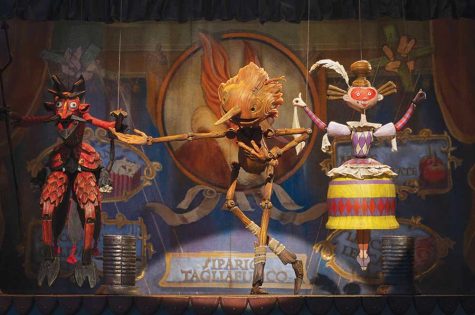It was the hard-knock life for Ali
The world’s most recognizable face
To many people in my generation, Muhammad Ali is just a boxer, and a damned good one. Most of his power as a legitimate icon has been lost in time. “The Trials of Muhammad Ali” is a film that dives into the man as he is caught in a battle of religion, race, and dissent against a brutal war. Ali’s many challenges outside of the ring, during a time of tumultuous political upheaval, make up the bulk of this film. Director Bill Siegel combines archival footage with interviews of friends, family, and several prominent members of the Nation of Islam, to create a portrait of a man who, quite literally, became the world’s most recognizable face.
The movie opens with a segment that many will find shocking. A standard talk show interview, via satellite, on The Eamonn Andrews Show quickly changes into something else as cohost David Susskind attacks Ali, whom he calls “a disgrace to his country.” History then rewinds to the 1960 Olympics in Rome, where an American fighter named Cassius Clay won a gold medal in the boxing light heavyweight division. Soon after, Clay began to climb the heavyweight ladder, defeating Sonny Liston in 1964, and becoming the world champion when he was 22 years old.
During this historic climb, Clay is introduced to the Nation of Islam, or NOI, by a minister selling copies of “Muhammad Speaks,” an NOI funded newspaper, on a street corner. From there, he meets and befriends both Malcom X and the head of the NOI himself, Elijah Muhammad. Here, the film breaks from the man who would become Muhammad Ali. The background it gives on the NOI brings the viewer back to the world of the 1960’s to show the African-American struggle of the civil rights movement, as well as the surrounding movements that splintered from it. When the viewer rejoins Clay, a little time after his bout with Liston, he has an announcement that catches the attention of many.
Cassius Clay has dropped his slave names, being the names the white men gave to his ancestors, and is now known as Cassius X. He has joined the Nation of Islam, becoming a minister of the faith. Soon, Cassius X becomes Muhammad Ali. Ali is incredibly, and refreshingly, open about his faith in the many opportunities he has to discuss it. His interviews are as articulate as they are antagonistic to the (white) hosts, as he bashes racism in America. As Ali’s second wife, Khalilah Ali, notes: “Pissing people off was his comfort zone.”
Many in the media outright refused to call Ali by his new name, but Ali would continuously remind them until they gave in. He would attack anyone who dared to attack him. This extended to the ring, where Ali would brutalize fighters who denounced him for his views. Slowly, Ali became the international face of American Muslims, visiting many countries around the world where he was greeted with considerable fanfare. He became so famous that one of his daughters, Hana Ali, admits to telling him “You aren’t my daddy. You’re Muhammad Ali.”
At this point in Ali’s life, the film breaks once again to cover the deaths of Malcolm X and Martin Luther King, both of whom Ali worked with. The documentary spends a little time showing the effects these deaths had on the development of civil rights. It then moves to what it considers the greatest fight of Muhammad Ali’s life. Ali’s name is pulled for the draft. But rather than go to Vietnam, Ali takes the stance of a conscientious objector. This is a move that sees him arrested, stripped of his title, and exiled from the ring. Those who knew him agreed that the emotional toll on Ali was great during this period. His arrest saw him facing up to five years in jail and a fine of $10,000.
Ali turned to public speaking to provide for himself and his family. He went to many colleges across the nation, criticizing Vietnam while advocating African-American pride and racial justice. This continued for four years, until the Supreme Court, in a unanimous ruling, overturned his conviction.
“The Trials of Muhammad Ali” was shown as part of the community cinema program in partnership with Vermont Public Television. A panel followed the movie, which saw students and faculty discussing everything from the legal status of marijuana to the end of apartheid, showing that many of the issues Muhammad Ali faced are still alive today. In the end, “Trials” showed a man who exemplified the values he stood for: religious freedom, racial justice, and holding your principles above all else.
Josh LeMay joined the Basement Medicine staff in Spring 2014, assuming the role of staff reporter.







